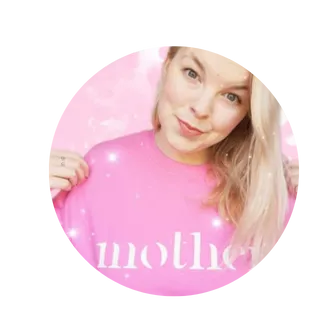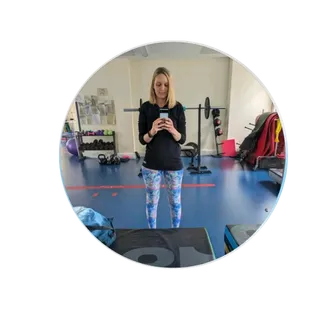Helping You Work With Your Brain, Not Against It
ADHD coaching for real life, whether you’re newly diagnosed, feeling overwhelmed, or just trying to hold it all together.
1:1 support, live group sessions, and practical tools that actually fit how your brain works.
New affordable online coaching launching in

Helping ADHD Minds Find Their Own Way
I’m Fraser, an ADHD coach, father, and former corporate leader who didn’t realise I had ADHD until I was 43.
Like many late-diagnosed adults, I spent years thinking I just wasn’t good enough. I pushed myself hard, burnt out often, and masked my struggles to keep up with a world that didn’t quite fit.
When I finally got diagnosed, everything changed. I stopped blaming myself and started building a life that worked for my brain. Now I help others do the same.
I work with adults who feel overwhelmed, newly diagnosed, or stuck, offering practical strategies, honest conversations, and a place where they don’t have to explain themselves.
Whether it’s 1-to-1 coaching or a structured group programme, the goal is always the same:
To help you feel understood, and to help you move forward.
Does any of this
SOUND FAMILIAR?
You always feel behind, even when you’re working flat out.
There’s a constant mental to-do list running in the background, and even small tasks feel like a mountain.
You’ve been called lazy, disorganised, or too sensitive.
But deep down, you know you’re trying harder than most people realise.
You procrastinate, overthink, and crash hard when you finally stop.
It’s not just time management — it’s emotional exhaustion, decision fatigue, and never feeling like you’re doing enough.
You’ve Googled ‘Do I have ADHD?’ more than once.
Maybe you’ve been diagnosed. Maybe not. But you know something isn’t working, and you’re ready for support that actually makes sense for your brain.

Our Mission
Helping ADHD Adults Feel Less Alone — and More in Control
Whether you're newly diagnosed or have been masking for years, our mission is simple:
Help you understand your brain, stop the spiral of shame, and build a life that actually fits.
How I Can Help
1:1 ADHD
Coaching
Get tailored support with practical tools, calm accountability, and a coach who gets how your brain works.
Perfect if you're ready for personalised help, but not sure where to start.
6-Week ADHD
Group Programme
Live coaching, structure, and a toolkit that actually fits your brain — all in a space where you realise you're not the only one.
Ideal if you want guidance and to hear from others like you.
Free ADHD
Strengths Report
Not ready for coaching? Start with a personalised analysis based on your ADHD traits — and see what’s actually working in your brain.
A zero-pressure way to get insight, hope, and clarity.
What others are saying

"Fraser is awesome"
Fraser is awesome and I enjoyed working with him. He taught me so much and in a way that makes sense to me. He's given me a new found confidence.


"My life changed forever"
He taught me so much and in a way that makes sense to me. He's given me a new found confidence.


"Life was SO hard"
Fraser helped me to turn the waltzers into teacups and calm the chaos, I'm still spinning and dizzy at times but now I get to enjoy the views around me!

Fraser & Cubic write a blog to help you with your ADHD if you aren't ready to reach out for help just yet.

ADHD vs High Functioning Autism: Key Differences Explained
The Day I Alphabetised the Crisps
It started with coffee. It always starts with coffee.
I walked into the kitchen to make a cuppa, opened the cupboard, and saw chaos. Crisps everywhere. Salt and vinegar snuggled up to prawn cocktail like a badly arranged blind date. My brain whispered, “Just give it a quick tidy.” Twenty minutes later I had created a crisp-based Dewey Decimal system and forgotten the kettle entirely. I looked down and realised I was holding a teaspoon in one hand and my glasses in the other… which was interesting, because I’d spent five minutes earlier looking for the glasses that were already on my head.
Welcome to my brain. Part ADHD, part something else. I used to think this was classic attention deficit hyperactivity disorder. Then I noticed I wasn’t just tidying, I was soothing myself with structure. Alphabetising crisps was less about productivity and more about calm. I craved predictability. I cared about the labels facing the same way. I felt relief when the rows lined up.
That was the first time I thought, hang on, is this still ADHD, or is there another flavour in the mix.
I did eventually remember the kettle. Triumph… but forgot to drink the bloody thing and found it the next day in the microwave.
How I Got Here, and Why I’m Not Pretending to Be Anyone I’m Not
I was diagnosed with ADHD at 42. Years of impulsive spending, time blindness, emotional sprints followed by naps I called “thinking lying down,” and a sophisticated ability to lose contact lenses in my own eye finally made sense. The diagnosis was life changing, and I’ll always champion adults getting a proper assessment. If you grew up guessing and masking, getting an accurate name for what you live with is a relief you feel in your bones.
But here’s the funny bit. After the initial “Oh, it’s ADHD” joy, some things still didn’t quite add up. I could focus for hours on a special interest and freeze in certain social situations. I found eye contact oddly intense. I rehearsed conversations in my head like a West End understudy. I had sensory sensitivities that made me want to walk out of busy cafés. Raising an autistic stepdaughter started sending me gentle reminders that essentially said, “Mate, this might be autistic traits.”
I smiled, made another coffee, alphabetised the herbal teabags, and decided to actually look into it.
This blog is the guide I wish I had back then. Useful, human, and a bit funny — because authenticity is the only way ADHD people like us trust anything. I’m a real person with a very real brain who’s learned how to build a life that fits. That’s what I help clients do too.
Quick Definitions Without the Jargon Headache

ADHD in Plain English
ADHD, officially attention deficit hyperactivity disorder, is a neurodevelopmental disorder that affects attention, impulse control, time management, and emotions. The American Psychiatric Association sets the diagnostic criteria in the Diagnostic and Statistical Manual of Mental Disorders.
Typical signs and symptoms of ADHD include distractibility, restlessness, impulsive decisions, forgetfulness, and sometimes intense bursts of hyperfocus that make you reorganise snacks like a librarian with a label maker.
ADHD is common in the general population, with the prevalence of ADHD in adults often quoted around 3–4 percent, though many people miss an ADHD diagnosis until later life — especially adult women who’ve learned to mask.
A diagnosis can open the door to effective treatment that might include medication, behaviour therapy, coaching, and adjustments at work and home.
High-Functioning Autism in Plain English
“High-functioning autism” is an older, informal way to describe autistic people who don’t have an intellectual disability and can often pass in everyday settings. The term is controversial, because if you look like you’re coping, people assume you’re fine — and your specific needs get ignored.
These days, the umbrella term is autism spectrum disorder, which used to include separate categories like autistic disorder, Asperger’s syndrome, and pervasive developmental disorder. Those were merged in the DSM-5 years ago. The traits didn’t vanish — the labels changed.
Autism centres on social communication differences, repetitive behaviours, sensory processing, and a need for predictable routines. An autistic person might find social cues slippery, eye contact uncomfortable, and small talk baffling. They might have deep special interests and a talent for sustained attention when the topic lights up their brain. Not better or worse — just different.
The Overlap Is Messy, and That’s Not Your Fault
Many people have both, often called comorbid ADHD and autism, or more recently, AuDHD. A recent study and more than one systematic review confirm this overlap is more common than we once thought. That’s why so many adults come to me saying, “I thought it was ADHD, but now I’m not sure.”
The truth is, you can meet people who show common traits across both, yet there are significant differences that matter for how you support yourself.
Here’s one example: ADHD might interrupt in conversation because the idea is sprinting away and you’re terrified it’ll vanish. Autism might interrupt because the rhythm of turn taking is hard to read or because precision wants to jump in with a correction. Same behaviour, different reason.
If you want a clearer comparison, skip down to the section Main Differences at a Glance.
Main Differences at a Glance, Human Edition

If you’ve ever wondered, “Is this ADHD or autism?” — this is the moment things might start clicking.
Attention
ADHD brains are curious, restless, always scanning for the next interesting thing. It’s like having 47 tabs open and a pop-up asking if you fancy starting a new hobby right now.
Autistic brains are the opposite. One tab open. Full screen. Deep focus. No notifications, please. It’s not distraction… it’s immersion.
Social connection
With ADHD, you usually want connection. You might interrupt or overshare because your brain is racing ahead of your mouth, followed by the classic “Did I talk too much again?” replay.
With autism, you value connection but often find it confusing or tiring. It can feel like everyone else got a secret social script that you never received.
Routine
ADHD often fights routine until chaos hits. We crave freedom and novelty — right up until we’re drowning in missed emails.
Autistic brains often depend on routine. Predictability equals calm. Even positive change can feel like the rug’s been pulled out.
Emotions
ADHD emotions are like fireworks — big, bright, and sometimes accidental.
Autism emotions build like pressure in a boiler — steady, then sudden, often after sensory or social overload.
Time
ADHD runs on two settings: now and not now. Deadlines only exist when panic arrives.
Autistic time works beautifully when predictable. Last-minute changes can derail the whole day.
In short, ADHD feels like being pulled outward by everything around you; autism often feels like retreating inward for safety.
Both are brilliant. Both deserve understanding, not fixing.
Brain Development, Not Character
Both ADHD and autism are about brain development. You didn’t choose this. You grew up in a world designed by neurotypical people, and you learned to survive in it. That deserves a parade, not a lecture.
When we treat these as moral issues, people end up with mental health issues like anxiety and depression. When we treat them as distinct neurodevelopmental conditions, people get appropriate support and recover a sense of self.
Adults First, Children Next, Shame in the Bin

A lot of parents come to me after noticing autism symptoms or signs of ADHD in their child. They want to help their autistic children or children with ADHD, but they’re exhausted, guilty, and unsure where to start.
Here’s my number one belief, and the reason I coach the way I do:
Understand yourself first, and your child will benefit.
When you name your needs, your child learns to name theirs. When you ask for help, they learn it’s normal to ask for help. That’s how we break the cycle of shame.
What Early Diagnosis Can Do
Early diagnosis in young children can unlock early intervention like occupational therapy, behaviour therapy, and school support. Parents stop blaming themselves. Kids stop thinking they’re broken.
The prevalence of ASD is clearer now, and medical professionals are getting better at spotting child’s symptoms once dismissed as shy or naughty.
If you’re reading this as an adult and thinking, “Too late for me,” it’s not. Your version of early is today. Adults get to heal too.
The Female Presentation — and Why Adult Women Are Often Missed
I work with many adult women who were the teacher’s pet, the diligent friend, the quiet one with perfect notes, or the charming talker who copied everyone else’s social scripts.
They had a hard time asking for help because they didn’t look like the picture in the textbook. Hidden struggles look like success until they look like burnout.
Many first seek a comprehensive evaluation only after their child is referred, and they suddenly recognise themselves in the reports. Relief. Grief. A bit of both. Then we start building a better life.
What Proper Assessment Looks Like (Without Going Mad)
A good assessment for either ADHD or autism should feel like someone finally watched the director’s cut of your life.
You want comprehensive evaluations that consider development, environmental factors, genetic factors, strengths, and challenges in everyday life.
Ideally, you’re seen by mental health professionals who understand both conditions. That’s how you get the correct diagnosis and a treatment plan that fits.
If autism is suspected, they’ll look at social communication, repetitive behaviours, sensory sensitivities, and flexibility around change.
If ADHD is suspected, they’ll look at attention, impulsivity, and hyperactivity, as well as executive functioning and time management.
Treatment, Support, and What Actually Helps in Real Life
ADHD Support That Works in Daily Life
There are medication options that can help you focus and regulate energy. Medication isn’t a personality transplant. It’s like putting your foot down on a car that already exists — you still drive.
Alongside meds, behaviour therapy, coaching, and practical tools help with planning, time management, impulse control, and emotional regulation.
Good support looks like calendars that actually get used, not ones that look pretty until March and then disappear.
Autism Support That Respects the Person
There’s no medicine for autism itself, because autism isn’t an illness to cure. Support focuses on specific needs.
Occupational therapists can help with sensory balance. Coaching can help with communication clarity, routines that feel safe, and scripts that reduce anxiety in social situations.
We remove friction, not humanity.
Dual Diagnosis, Double Kindness
If you have both, your plan should honour both. ADHD medication might help attention and energy, but if your sensory world is on fire, no pill will make the office air-con less noisy.
You need a treatment plan that includes rhythm, rest, and respect for sensory load, as well as tools for attention and time.
Real Life Examples from My Coaching Chair

I had a client who swore their meltdown problem was ADHD. Classic impulsivity, right?
We teased it apart and found the triggers were fluorescent lights, surprise meetings, and vague emails. Once we treated it like high-functioning autism features in a loud environment — not poor character — the meltdowns halved. Same person, better map.
Another client kept booking double gym sessions then ghosting both. ADHD wanted novelty. Autism wanted predictability. We picked one gym, one time, made it gentle. He went every Tuesday for months. Progress feels boring when it’s working.
And me, I still alphabetise the crisps when the world feels loud. Difference is, I know why now. Knowing why turns shame into choice.
This isn’t OCD. OCD can co-occur with ADHD, but this was about soothing through order. You can read more of my thoughts on it here.
Social Skills Without Feeling Like a Performing Seal
If you grew up missing social cues, you probably also grew up saying sorry for everything.
With autism, social communication isn’t broken — it’s different. You may prefer directness, clarity, and limits on frequency. That’s not rude. That’s a boundary.
With ADHD, you might talk fast, interrupt, or overshare. That’s not rude either. It’s your brain trying to connect before the thought runs off.
Both can be coached kindly. We don’t build masks. We create agreements that respect everyone.
The Office, the Meeting, and the Mythical Clean Inbox
Work is where many adults discover they can’t pretend anymore.
If you have ADHD, email can feel like a hydra — delete one, three more appear.
If you have autistic traits, open-plan offices can feel like a nightclub at noon.
People who thrive in chaos wonder why you’re struggling. You wonder why you can’t keep up.
Reasonable adjustments are your friend. Headphones. Written follow-ups. Clear agendas. Flexible start times.
These aren’t special favours — they’re simple ways to level the playing field for autistic individuals and adults with ADHD.
The School Run, the Meltdown, and the Moment You See Yourself in Your Child

If you get dysregulated by noise, so do they. If you find eye contact tiring, they might too. If you have sensory sensitivities, that itchy jumper label is probably annoying them as well.
When you learn to self-regulate in your daily life, they learn to do the same.
You don’t have to be perfect — you just have to be honest.
There’s a difference between an autistic child who can’t handle a loud assembly and a naughty child. There’s a difference between an ADHD child who forgot homework and a lazy child.
Language matters, because kids swallow language whole.
What About Statistics and All That Proof
You’ll see lots of numbers online about the prevalence of ASD and the prevalence of ADHD.
The important part isn’t getting the exact percentage right for a pub quiz. It’s recognising these are common enough that your family isn’t weird or rare. You’re not alone.
If anything, you probably already know several people who are somewhere on these spectra — they just haven’t told you yet.
Why Authenticity Wins, Always

You don’t need to act like a productivity guru to build a life that works.
You can say, “I have a brain that needs breaks and clarity.” You can say, “I have a brain that needs novelty and fun.”
When I coach, I’m not performing expertise at people. I’m sitting beside them, pointing at the map. Here’s where you are. Here’s where your nervous system panics. Here’s a quieter road.
People stick with coaching not because I’m perfect, but because I’m honest.
Authenticity isn’t a marketing trick — it’s nervous system safety. When you stop pretending, your body stops bracing.
A Practical Mini-Guide to Next Steps
Notice patterns without judgement. Where do you freeze, fidget, or alphabetise the crisps?
Seek a proper assessment if you want clarity. Ask your healthcare provider about a comprehensive evaluation for both ADHD and autism.
Tell one person the truth about how your brain works. Pick someone kind.
Pick one friction point in your everyday life and adjust it — headphones, visual timers, or breaks in your calendar.
Design for recovery, not punishment. Recovery means snacks, movement, and sensory calm.
If you’re a parent, narrate your process. “Mum gets overwhelmed at loud shops, so we’re taking ten minutes in the car.”
Consider coaching. Not to fix you, but to help you notice what already works and do more of it.
Frequently Asked… by My Clients While Holding a Cold Coffee

Is it worth getting a diagnosis if I’m coping?
Yes. Coping is expensive. A label gives you language, access to support, and less self-blame.
If I suspect both, which assessment first?
There’s no single rule. Some start with ADHD because medication can reduce noise; others start with autism for environmental support. The right order is the one that makes your life easier.
What if I’m wrong?
Then you learned more about your brain. That’s never wasted.
What if my child is struggling at school?
Ask for a meeting. Use plain language. Focus on specific needs rather than labels, and ask about early intervention options.
Final Word Before You Put the Kettle On Again
Whether you sit more on the ADHD side, the autism side, or right in the overlap, you’re not broken.
You’re running an advanced operating system that just needs the right settings.
Understand yourself first, and your kids will grow up in a home where difference is normal, not secret.
That’s how you end the shame cycle.
Now, go make that coffee you were definitely making. If you find yourself alphabetising the biscuits this time, smile — you’ve just met your nervous system in action.
Want More of My Biscuit Stories?
If this hit home, you don’t have to do it alone.
Try my free ADHD Analysis Tool to map your strengths and challenges.
For personal support, my 1-to-1 coaching helps you design a life that fits your actual brain, not the imaginary one you think you should have.
Prefer structure? Register interest in my 6-week online programme for newly diagnosed professionals. You’ll hear things you’ve felt but never said out loud, and leave with systems that actually stick.
You can always ask me questions — drop me an email at [email protected].
I write these blogs and do this work because I care. Everyone deserves support that fits.
STILL NOT SURE?
Frequently Asked Questions
Do I need a formal ADHD diagnosis to join or get coaching?
Nope. Many people I work with are still figuring it out or self-identify based on lived experience. If you resonate with what you’ve read, you’re welcome here.
What’s the difference between 1:1 coaching and the group programme?
1:1 coaching gives you personalised support, we focus completely on your life, goals, and challenges.
The 6-week group programme gives you live guidance alongside others, so you hear real examples and realise you’re not the only one.
I’m not sure what I need yet. Where should I start?
That’s totally normal. The best starting point for most people is the free ADHD Strengths Report. It gives you insight without pressure, and from there, you can decide if coaching or the course feels right.
Is this like therapy?
No, coaching is future-focused and practical. I’m not a therapist, and I don’t work with severe mental health distress. But I do work with people who feel stuck, lost, overwhelmed, or unsure how to manage day-to-day life with ADHD. If we hit something therapy-related, I’ll help you find the right support.
What if I miss a live session in the group programme?
It happens! You'll still get the tools and resources from that week, and I’ll send a recap. This programme is built with ADHD in mind, so flexibility is baked in.
Can I do both the group and 1:1 coaching?
Absolutely. Many people start in the group to get foundational tools and then move into 1:1 for deeper support. Or vice versa. There’s no wrong order, just what works for you.
How much does it cost?
Group Programme: £200 for the full 6 weeks
1:1 Coaching: £100 per session
Free ADHD Strengths Report: £0 — it’s truly free, no catch
What if I’m not ready to commit yet?
That’s okay. Sign up for the free report, or drop me a message with your questions, follow me on social. No pressure. No guilt. Just support when you’re ready.
Reach Out, No Pressure, No Stress
Whether you're curious about coaching, unsure where to start, or just want to ask a question — I'm happy to hear from you. There's no pressure to sign up or commit. Just send a message and I’ll get back to you soon.
07904 711781

